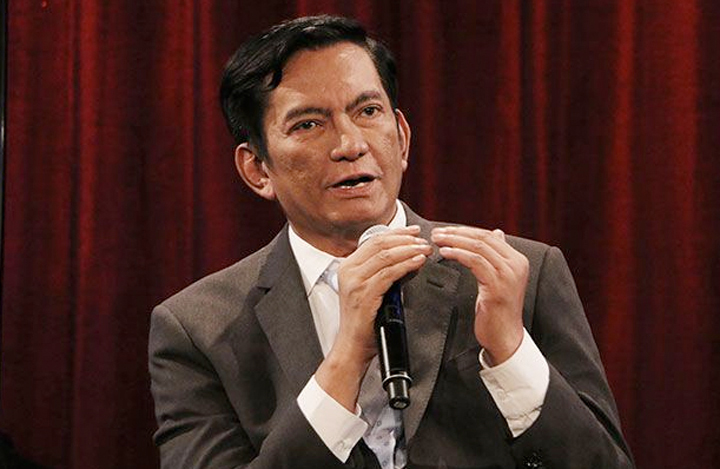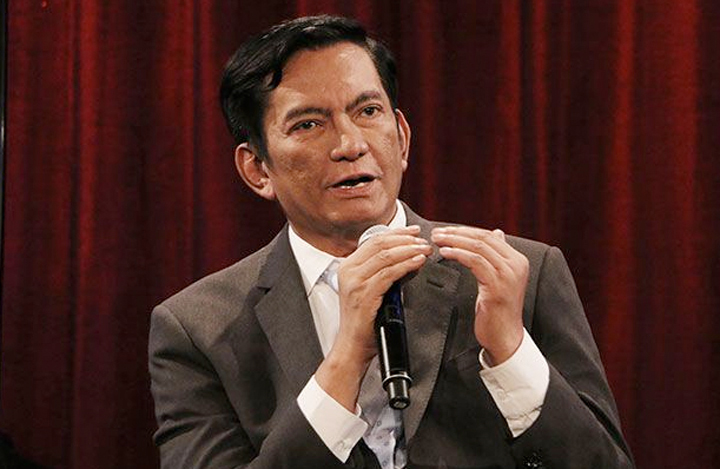
THE House Committee on Ways and Means endorsed for plenary approval last August 2 a substitute bill defining the tax rates for proprietary schools.
Albay Rep. Joey Sarte Salceda said his committee already transmitted House Bill (HB) 9913 to the House Committee Committee on Rules for immediate plenary deliberations. Salceda said that they will sponsor this measure in the House floor by Tuesday, August 3.
“Hopefully, before the year ends, this bill will be on President Duterte’s desk.”
Under the substitute bill, the preferential tax rate of 10 percent imposed on proprietary educational institutions would be reduced to 1 percent from July 1, 2020, to June 30, 2023, after which the tax rate shall be set to 10 percent.
Salceda said the bill intervenes in the implementation of the recent regulation of the Bureau of Internal Revenue (BIR) increasing the tax rate of private educational institutions to 25 percent from 10 percent. He said HB 9913 must be passed to help private schools hire more teachers and keep existing staff.
“During the briefing, we reached a consensus and came up with a draft which also adopted some recommendations of the Cocopea [Coordinating Council of Private Educational Associations],” Salceda said. “The draft clarified that the preferential tax rate, now 1 percent of their taxable income under the Create [Corporate Recovery and Tax Incentives for Enterprises] law, applies to all proprietary schools.”
Help institutions
THE lawmaker said they sent the draft Committee Report along with the notices and invitations.
“However, there were several concerns this weekend. Cocopea wanted the retroactive application specified while the BIR reminded that certain income of non-stock, non-profit educational institutions are also covered by Section 27 (B) of the Tax Code,” Salceda said. “There were also some formatting edits to ensure the clarity and consistency of the measure, so we addressed those measures.”
According to the lawmaker, applying the reduced 1-percent preferential rate under the Create law (Republic Act 11534) until 2023 would allow these schools to save an equivalent of 3.43 percent of compensation expenses, which Salceda believes could help these institutions rehire at least 12,996 teachers at the start of the next school year.
“It will help private schools keep their teachers. They already had to fire teachers due to the pandemic,” Salceda said. “I think the whole committee agrees we should provide them relief.”
Likewise, the solon said the bill will also “absolve the private schools of the legal liability pay back taxes during the period when the law was unclear as to their treatment.”
“But the aim is also to ensure that the BIR is also absolved from any refund liabilities. It’s a good compromise and was the premise of the agreement between me and the BIR,” Salceda added in response to a request from private school associations that the clause in the bill preventing refunds due to the rate reduction be removed.
Order suspended
LAST week, the BIR suspended the implementation of certain provisions of its tax regulation that would have hiked the corporate income tax rate of private schools from 10 percent to 25 percent.
BIR Revenue Regulation (RR) 14-2021 suspended its RR 5-2021 pending the passage of appropriate legislation.
“To ease the burden of taxation among proprietary educational institutions, especially during this time of Covid-19 pandemic,” the BIR RR 14-2021 said.
The order, issued July 26, said it takes into account the pending bills in Congress seeking to amend the National Internal Revenue Code of 1997, as amended, “to finally clarify the income taxation of schools.”
Private schools have protested the BIR’s “unilateral insertion” in its RR 5-2021 of a condition that proprietary educational institutions must be “nonprofit” to enjoy the reduced rate of 1 percent as a result of the passage of RA 11534.
Private schools earlier filed a petition before the Court of Tax Appeals in a bid to stop the implementation of RR 5-2021.
Policy conflict
SALCEDA’S proposed bill and one at the Upper House, Senate Bill (SB) 2272, received support from the Cocopea, which called for the enactment of the measures.
The Cocopea, which counts over 2,500 private educational institutions as members, issued the call after the BIR issued RR 14-2021.
Cocopea Chairman Anthony Jose M. Tamayo emphasized the urgency of these corrective measures “to address the confusion that the conflicting policies are causing and to alleviate the precarious state of the private education sector consequent to the pandemic crisis.”
“It is critical that the bills be passed as soon as possible, before the new school year starts in September,” Tamayo, who is also president of the Philippine Association of Colleges and University, said. “This will allow the private education sector to focus all of our time and resources on our highest priority, the very grave learning crisis that our country is now struggling with, rather than on correcting erroneous interpretations of the law and the Constitution.”
Cocopea Managing Director Joseph Noel M. Estrada emphasized the need to pass these laws because of the suspension of the implementation of BIR RR 5-2021.
Extending lifeline
ACCORDING to Estrada, who is also a lawyer, while the suspension “is a step forward, the suspension is merely temporary and we cannot lose sight of our main objective of pushing for a law to finally remove any doubt as to the right of proprietary educational institutions to the preferential tax rate of 10 percent, which has been in the Tax Code since 1968, and the concessionary tax rate of 1 percent for three years under the Create Act, to provide temporary relief during the pandemic.”
He further explained that “without this curative legislation, the suspension may be withdrawn again or reversed anytime by the BIR and DOF given the history of revenue issuances on this matter.”
Cocopea, nevertheless, said in its statement it will “remain vigilant on future developments on this important tax policy to ensure our proprietary educational institutions are securely protected from illegal tax burdens.”
“In addition, we shall continue to advocate for the fulfillment of the objectives of the Create Act’s authors: to extend a lifeline to our struggling schools during this pandemic, and guarantee the continuity of learning for our students, jobs for our employees and livelihoods for the many small businesses e.g. carinderias, tricycle drivers, who are dependent on our schools,” Cocopea said.

